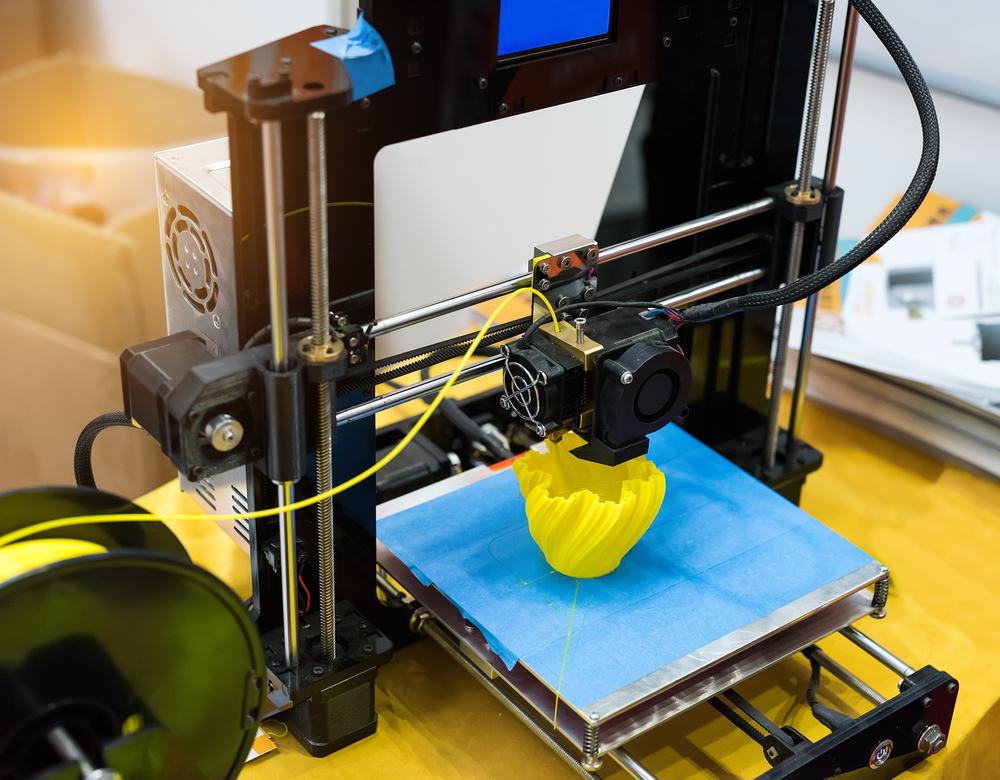Business News Daily provides resources, advice and product reviews to drive business growth. Our mission is to equip business owners with the knowledge and confidence to make informed decisions. As part of that, we recommend products and services for their success.
We collaborate with business-to-business vendors, connecting them with potential buyers. In some cases, we earn commissions when sales are made through our referrals. These financial relationships support our content but do not dictate our recommendations. Our editorial team independently evaluates products based on thousands of hours of research. We are committed to providing trustworthy advice for businesses. Learn more about our full process and see who our partners are here.
Beyond Bitcoin: How Blockchain Is Improving Business Operations
Blockchain is more than just bitcoin. Learn how businesses can incorporate this cutting-edge technology.

Table of Contents
Most people have heard about blockchain in tandem with bitcoin’s rise as the flagship cryptocurrency. However, blockchain is more than just bitcoin; it’s a revolutionary method of tracking transactions using technology. While still in its infancy, blockchain is being adapted to numerous business uses — such as data management and regulatory compliance — and will likely serve many future purposes.
What is blockchain technology?
Blockchain is a massive, decentralized ledger of transactions maintained by many different decentralized sources. As a result, there is no need for a single central authority, such as a bank, to confirm whether transactions really occurred. Transactions recorded in blockchain are secure and generally irreversible once confirmed.
What are some uses for blockchain technology in business?
Many businesses are exploring a range of blockchain applications that extend beyond its origins in digital finance. Below are some ways businesses use blockchain to embrace technology for a competitive advantage.
Audits
Blockchain offers what is essentially a permanent record of transactions. It creates an easy-to-follow paper trail for business audits, both internal and governmental. It guarantees accuracy and solves the problem of retrieving records from numerous disparate sources.
“The more you store in blockchain, the more history you have in your hands to audit,” explained Antonis Papatsaras, chief technology officer of HootSuite.
Quality assurance
Blockchain plays a role in quality assurance, especially when something goes wrong. Companies can link every facet of the supply chain via blockchain. If there’s a recall or investigation into where something went wrong, blockchain offers a definitive, contiguous ledger to immediately identify the problem.
“Events like a salmonella scare could be traced back to the source in seconds, and every single bag from that batch would be flagged for removal, whether it be freshly packed in the processing plant, in a truck being delivered or in the retail store already,” explained Mike Almeida, owner of Empire ATM Group. “This system could notify everyone involved in seconds rather than days.”
Researchers in Hong Kong also use blockchain technology to help ensure product quality. They have created HerBChain, a blockchain system that records the processes involved in manufacturing herbal products. The system verifies that the products on the blockchain remain traceable and unadulterated. Companies with products on this blockchain can’t easily manipulate their data, which helps guarantee products meet safety and quality standards.
Securities and commodities trading
Blockchain promises quicker trading on stock exchanges, whether in securities or commodities. The technology’s distributed nature ensures that a process undertaken over several days is affirmed and finalized in several minutes, which significantly streamlines the entire experience.
“Rather than trades being processed by a string of validators over the course of a few days, blockchain-based settlement can happen ‘automatically’ within minutes,” explained Nick Spanos, co-founder of Zap and founder of the Bitcoin Center NYC.
Smart contracts
Smart contracts help organizations automatically handle significant transaction amounts, such as those that run across supply chains. They can integrate services across various businesses without divulging sensitive or proprietary information.
“Smart contracts … allow organizations to embed logic, via code, into a blockchain network for the automatic handling of transactions across participants,” explained Nelson Petracek, chief technology officer of Board International.
For example, European lending group SEB and French banking group Crédit Agricole have launched a blockchain platform where users can raise and manage capital. On this platform, smart contracts initiate automatic transactions based on specific terms. This setup creates a transparent financial environment that processes transactions quickly.
Supply chain management
Blockchain can track goods and materials within an organization, such as throughout a manufacturing company’s supply chain. As a product leaves the manufacturing facility, blockchain can record its arrival at a warehouse and then its shipment to a retail store.
For example, De Beers, a diamond mining firm, has created a blockchain-based platform to track the production and distribution of its diamonds. This technology covers the entire process, from the mining stage to the jewelry store. The firm has opened the platform for other companies in the diamond mining industry to use. This way, retailers and customers can verify the genuineness of a diamond.
“Using blockchain for supply chain management, a business owner has more visibility into the processes of the business,” noted Igor Barinov, technical manager at Blockscout Technologies. “Blockchain can add transparency and align [the] interests of a business with other participants of its ecosystem, given public networks are implemented, be that suppliers or customers.”
Transactions and reimbursements
Transactions and reimbursements are perhaps the most familiar application of blockchain technology today. Bitcoin — and other cryptocurrencies like Ethereum — are backed by blockchain technology. Today, companies are creating initial coin offerings (ICOs) for their blockchain-backed currencies and platforms.
Throughout the years, bitcoin has experienced numerous spikes in value. As such, even some national central banks are experimenting with their own blockchain-backed currencies, like the J Coin in Japan. Several financial institutions in the U.S. are also exploring the use of cryptocurrencies.
Voting
Like currency, votes can be moved along a blockchain in a neutral, accurate and secure way. Using blockchain as a mechanism for consensus-building in communities and even nations could radically alter modern notions of democracy and strengthen the validity of election results.
“Voting is an interesting prospect for blockchain, as immutability and transparency are both necessary for successful elections,” Spanos said. “As far as ensuring the accuracy of the vote, as long as you trust the way the blockchain works, you can trust that records in the blockchain have not been tampered with or added after the fact.”
What is the future of blockchain technology?
Given all the ways blockchain is starting to disrupt conventional transaction and recordkeeping methods, how quickly will we see mass adoption? Most experts say that while you shouldn’t hold your breath, widespread adoption will be inevitable.
Within large industries are pockets of businesses that have already made this technology part of their regular operations. For example, Sentient Equity Partners specializes in global resources and uses blockchain to transparently post its compliance with environmental, social and governance (ESG) standards. The firm also began creating a blockchain platform that businesses in the mining industry can use to ensure they adhere to ESG regulations and prioritize corporate social responsibility.
“The blockchain is definitely still arcane for the general population,” Spanos conceded. “Fortunately, just like you don’t need to understand how an internal combustion engine works in order to drive a car, one does not need to understand how the blockchain works in order to interact with it.”
Becoming a part of the blockchain revolution
The integration of blockchain technology into regular business operations has sparked new opportunities for transparency, efficiency and security. To capitalize on blockchain’s potential, you can start by identifying your business’s pain points within any processes that blockchain technology can solve.
Once you’ve highlighted these areas, collaborating with blockchain experts or development teams can lead to meaningful solutions. As more companies embrace this technology, bitcoin may become known as merely a door to the world of solutions that blockchain technology offers.
Adam Uzialko contributed to this article. Source interviews were conducted for a previous version of this article.














